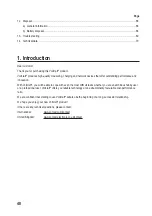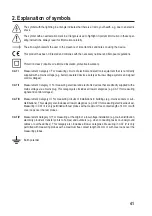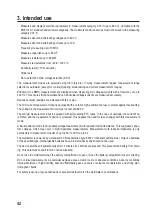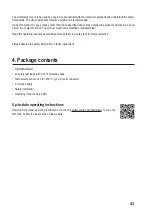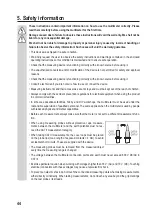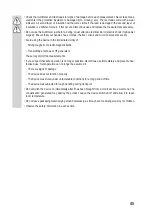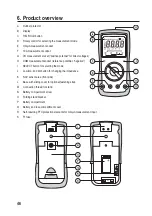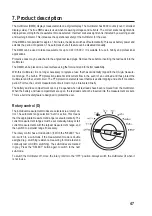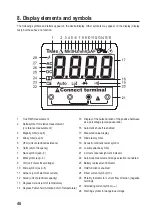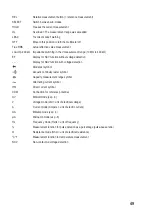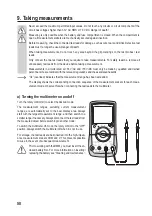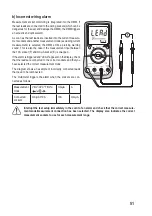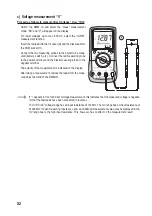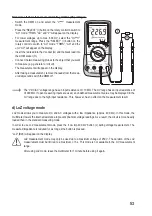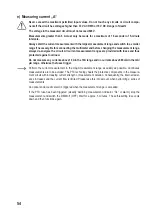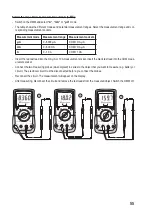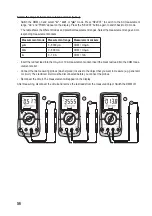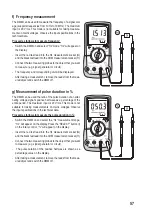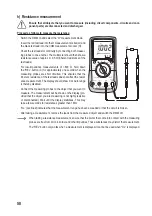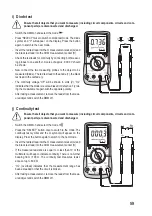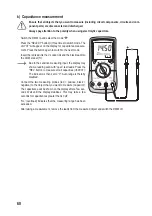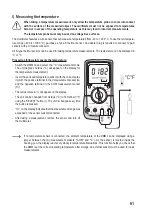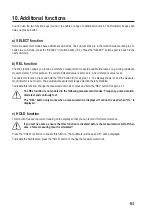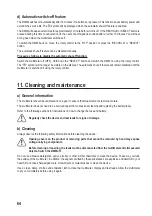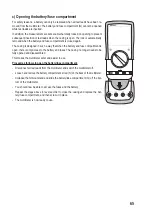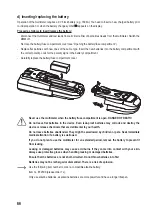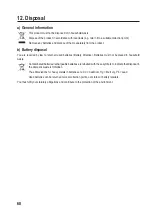
53
Proceed as follows to measure alternating “V ” (AC) voltages:
- Switch the DMM on and select the “V
” measurement
mode.
- Press the “SELECT” (I) button on the rotary control to switch to
“AC” mode. “TRMS, “AC” and “V” will appear on the display.
- For lower voltages up to max. 600 mV, select the “mV
”
measurement range. Press the “SELECT” (I) button on the
rotary control to switch to “AC” mode. “TRMS”, “AC” and the
unit “mV” will appear on the display.
- Insert the red lead into the V socket (G) and the black lead into
the COM socket (H).
- Connect the two measuring probes to the object that you want
to measure (e.g. generator or circuit).
- The measurement will appear on the display.
- After taking a measurement, remove the leads from the meas-
ured object and switch the DMM off.
The “V DC/AC” voltage range has an input resistance of >10 MΩ. The mV range has an input resistance of
≤1000 MΩ. If open measuring inputs are used, an undefined measurement value may be displayed in the
mV range due to the high input resistance. This, however, has no effect on the measurement result.
d) LoZ voltage mode
LoZ mode allows you to measure DC and AC voltages with a low impedance (approx. 400 kΩ). In this mode, the
multimeter lowers the internal resistance to prevent phantom voltage readings. As a result, the circuit is more heavily
loaded than in the standard measuring mode.
In order to use LoZ measurement mode, press the “Low imp.400 kΩ” button (J) during voltage measurement. The
measured impedance is reduced for as long as the button is pressed.
“LoZ” (B20) will appear on the display.
LoZ measurement mode may only be used up to a maximum voltage of 250 V. The duration of the LoZ
measurement must be limited to a maximum of 3 s. This mode is not available in the mV measurement
range.
After using LoZ mode, leave the multimeter for 1 minute before using it again.


